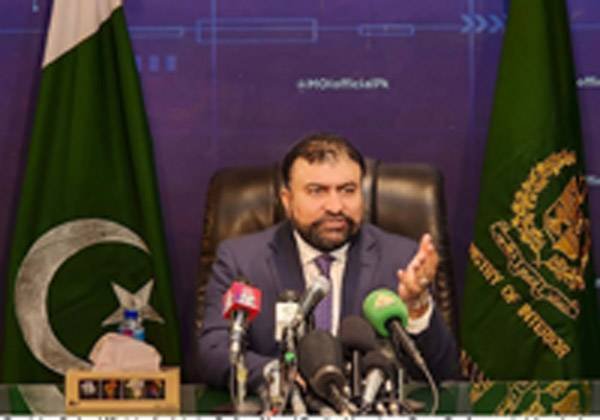Barrister Roman Awan
Provincial autonomy is a term that refers to the degree of self-government and independence that a province has within a federal system. A federation is a political entity comprising a central government and several subnational governments, such as provinces, states, or regions, that share power and authority. The constitution defines the division of power and responsibilities between a federation’s central and provincial governments. Usually, it protects the rights and interests of the provinces from being violated by the central government.
There are different forms of provincial autonomy, depending on how much power and control the provinces have over their affairs. Some of the main conditions are:
- Financial autonomy: This means that the provinces can raise their revenues through taxes, fees, royalties, grants, or other sources and spend them according to their priorities and needs. Financial autonomy also implies that the provinces have a fair share of the national revenues and resources and are not dependent on the central government for their fiscal matters.
- Administrative autonomy: This means that the provinces have the authority to manage their public services, such as health, education, infrastructure, security, justice, etc., and to appoint their own officials and personnel. Administrative autonomy also implies that the provinces can implement their policies and programs effectively and efficiently without interference or oversight from the central government.
- Legislative autonomy: This means that the provinces have the power to make their laws and regulations on matters that fall within their jurisdiction, such as culture, language, environment, local government, etc., and to enforce them within their territory. Legislative autonomy also implies that the provinces have the right to participate in the national law-making process on matters that affect them or require their consent.
Pl, subscribe the video channel of republic policy.
Provincial autonomy is important for a federation because it can promote democracy, diversity, development, and stability. By giving more power and voice to the provinces, provincial autonomy can enhance the representation and participation of different groups and regions in the political system and foster a sense of belonging and identity among them. By allowing more flexibility and innovation in policy-making, provincial autonomy can also address the specific needs and challenges of different provinces and foster economic growth and social welfare. By reducing the conflicts and grievances between the central and provincial governments, provincial autonomy can also strengthen the unity and cohesion of the federation and prevent secessionist or separatist movements.
In Pakistan, provincial autonomy has been a contentious issue since its inception as a federal state in 1947. The constitution of Pakistan has undergone several changes over time to define and redefine the division of power between the central and provincial governments. However, in various aspects, many provinces have expressed dissatisfaction and resentment over the lack of provincial autonomy. A few of the primary issues are:
- The Dominance of Punjab: Punjab is the largest province in Pakistan in terms of population, area, economy, and representation in the national institutions. Many smaller provinces, such as Balochistan, Khyber Pakhtunkhwa (KP), and Sindh, have accused Punjab of exploiting their resources, marginalizing their interests, and imposing their culture and language on them.
- The distribution of resources: Pakistan has rich natural resources, such as gas, oil, coal, minerals, water, etc., but they are unevenly distributed among the provinces. Many provinces have complained that they must receive a fair share of these resources or revenues from the central government. They have also demanded more control over their resources and their utilization.
- The role of the military: The military has played a significant role in Pakistan’s politics since its independence. It has intervened several times to overthrow civilian governments or influence their decisions. Many provinces have perceived the military as an instrument of centralization and oppression, undermining their autonomy and rights.
- The ethnic conflicts: Pakistan is a diverse country with many ethnic groups, languages, religions, cultures, etc., but they are not equally recognized or respected by the state. Many ethnic minorities have faced discrimination, violence, or neglect from the majority or dominant groups. Some ethnic groups have also developed nationalist or separatist movements that challenge the legitimacy or integrity of Pakistan.
Subscribe the English/Urdu Magazines.
To address these issues and enhance provincial autonomy in Pakistan,
Various players have made some efforts and initiatives over time. Some of them are:
- The 18th Amendment: This landmark constitutional amendment passed in 2010 devolved more powers and responsibilities from the central to provincial governments. It abolished the concurrent list that allowed both levels of government to legislate on 47 subjects. It also increased the provinces’ share in the National Finance Commission (NFC) Award that distributes national revenues. It also gave provincial assemblies more autonomy to elect their governors and chief ministers.
- The 7th NFC Award: This was an agreement reached in 2009 that revised the formula for distributing national revenues among provinces based on multiple criteria such as population, poverty level, revenue generation capacity etc., rather than just population as before. It also increased the share of Balochistan in recognition of its backwardness and grievances.
- The Balochistan Package: This was a set of measures announced in 2009 by the federal government to address the political, economic, and security issues of Balochistan. It included increasing the development funds, gas royalties, and job quotas for Balochistan, releasing political prisoners, withdrawing military forces, and initiating dialogue with the Baloch nationalists.
- The Council of Common Interests (CCI): This constitutional body consists of the prime minister, the chief ministers of all provinces, and other federal ministers. It is responsible for resolving disputes and coordinating policies on matters of common interest between the central and provincial governments. It also oversees the implementation of the NFC Award and other agreements.
These efforts and initiatives have been welcomed by many as positive steps towards strengthening provincial autonomy and federalism in Pakistan. However, they have also faced some challenges and limitations, such as:
- The implementation gap: Many of the provisions and promises made by the federal government have yet to be fully or effectively implemented due to a lack of political will, bureaucratic hurdles, legal disputes, or security threats. For example, the 18th Amendment has yet to be fully operationalized in some sectors, such as health and education, where the federal government retains some control or influence. The Balochistan Package has yet to be fully delivered or accepted by all stakeholders.
- The resistance from the centre: Some elements within the federal government or the military have resisted or opposed the devolution of power or resources to the provinces, fearing that it would weaken their authority or influence. They have also raised concerns about the accountability or capacity of the provincial governments to manage their affairs or to protect national interests. They have also tried to retain some control or oversight over matters such as security, foreign affairs, or CPEC.
- The inter-provincial disputes: Some provinces have developed conflicts or disagreements with each other over some issues, such as water sharing, electricity distribution, tax collection, or boundary demarcation. They have also accused each other of unfairness or discrimination in receiving or utilizing resources or opportunities. They have also competed for influence or representation in national institutions or forums.
- The intra-provincial issues: Some provinces have also faced internal issues such as ethnic diversity, regional disparity, or political instability that affect their autonomy or performance. For example, Sindh has a sharp divide between its urban and rural areas, where different political parties and ethnic groups dominate. KP has a complex relationship with its newly merged tribal districts that were previously under federal administration. Balochistan has a fragile coalition government faces challenges from various factions and groups.
Therefore, provincial autonomy in Pakistan is still a work in progress that requires more effort and cooperation from all stakeholders to achieve its full potential and benefits. Lastly, federalism protected in the constitution of Pakistan must be applied. Pakistan is a natural federation that should be functional like a federation. These are the provinces which make a federation, not a federation which makes provinces. Strong provinces can only ensure a stronger federation.

















